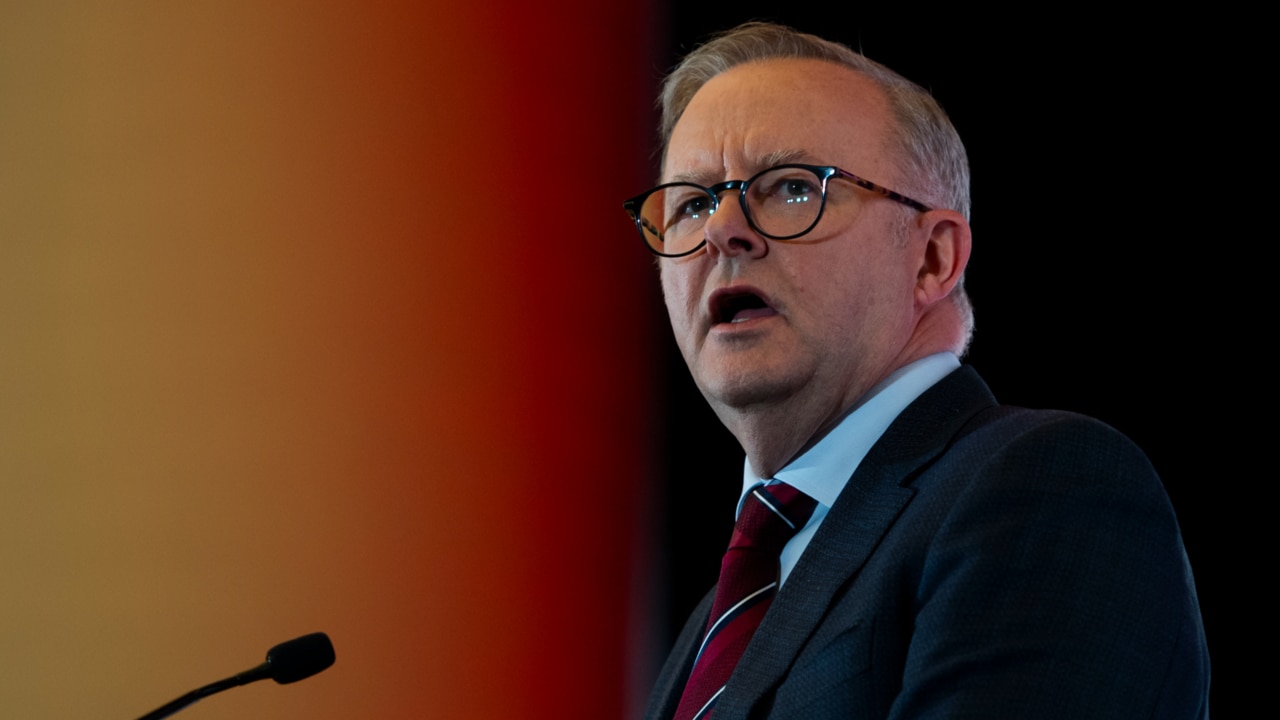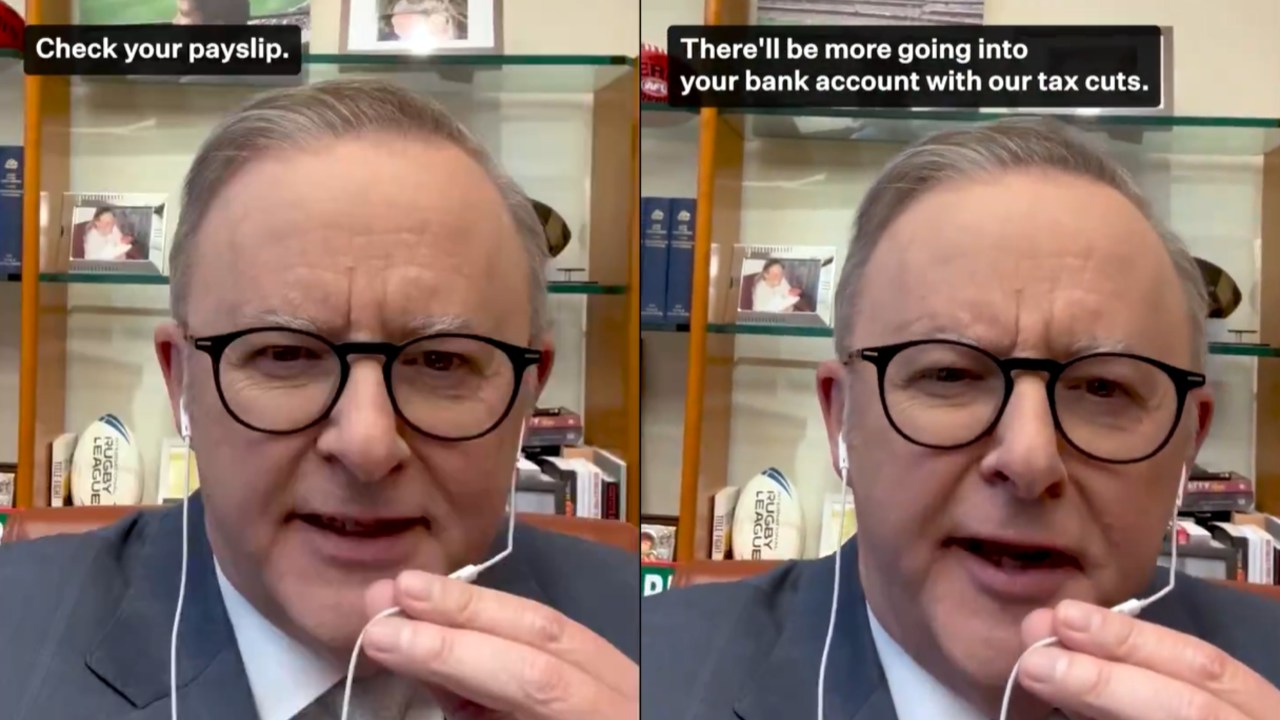Prime Minister Anthony Albanese’s attempt to brag about Labor’s tax cuts has backfired after incensed Aussies struggling with high inflation and poor wages growth lashed out at him.
Mr Albanese took to X, formerly Twitter, and Instagram with a “quick reminder” for Aussies to check their payslips.
“There’ll be more going into your bank account with our tax cuts,” the Prime Minister said.
But his attempt to highlight the savings backfired when cash-strapped Aussies reminded Mr Albanese of the long list of financial hardships they faced – including high inflation, soaring rents and lagging wages growth.
A common theme of many commenters was the tax cuts being negated by rising cost of living expenditures which essentially rendered the changes null and void.
“My overall net pay went up $55 a week YAY!! My rent went up $40 a week the week before let alone my car insurance, groceries, petrol, and car rego. Tell me again how you are addressing the cost of living crisis @AlboMP,” wrote one X user.
Another added: “Tax cut has ready gone with all the price rises implemented on the 1st July. Now most businesses will cop the yearly CPI increase on their commercial lease.”
One commented on Instagram: “Tbh, my rent just went up so the tax cuts did nothing and will do nothing, if everything else is just going up at the same time ???”
Shadow treasurer Angus Taylor told SkyNews.com.au the poor economic standing of the nation meant Aussies doing it tough could see through Labor’s “con job”.
“Australia is in an entrenched household, consumer confidence and productivity recession because of Labor’s homegrown inflation,” he told SkyNews.com.au.
“Under Labor, Australians’ standard of living has collapsed. After three failed budgets, the Albanese Labor Government has no plan to restore it.
“Hardworking Australians can see right through Labor’s cost of living con job.”
Mr Taylor’s comments were similarly voiced by an outraged commenter who accused the Prime Minister of doing “nothing” over the “cost of living (and) housing crisis” despite being in the nation’s top job.
“You could have fixed it all, but instead chose the veneer of change,” they wrote.
Many also attacked Labor’s links with the controversial CFMEU, which faced bombshell allegations of criminal conduct within its Victorian-Tasmanian arm over the weekend leading to the branch being placed under administration.
Commenter were quick to outline the union’s $6.2 million in donations to Labor since Mr Albanese took the helm in 2019.
“Like you should of (sic) been checking the CFMEU eh? Resign. You’re more corrupt thank scomo (sic),” wrote one.
Another said: “Checked my payslip and a bunch of it is going to Labor donations from the CFMEU and Ukraine. Time to resign.”
The Prime Minister’s post comes one week after it was revealed Australia has some of the worst real wage growth of the Organisation for Economic Co-operation and Development’s (OECD) 38 member nations.
A new outlook from the organisation calculated real Aussie wages were 4.8 per cent lower in the March quarter of 2024 than at the end of 2019, when adjusted for inflation.
“This is one of the largest drops in real wages among OECD countries,” it said.
“Real wages grew in 2024 for the first time in nearly three years, but households are still facing pressure under the cost-of-living crisis.”
Real wages growth determines the actual growth in someone’s pay packet once inflation is deducted.

A key factor in the lacklustre wages growth was soaring inflation which has hindered the buying power of Australians.
This was seen in a recent report from The Daily Telegraph which found the cost of a basket of most basic groceries had soared about 14 per cent since last year.
The findings also show a general supermarket shop is about one-third more expensive than in 2021 and that a family spending about $300 per week on groceries will wind up forking over an extra $1000 per year at the checkout.
The higher groceries come as Labor delivered its Stage 3 tax cuts at the start of this month.
Australians will pocket an extra $350 to $4,500 this year depending on their income bracket, with Westpac estimating the average taxpayer will save about $1,880 each year.

